Beginner Tips
Avoiding Surfing Mistakes With Martin Dunn: Beginner Level
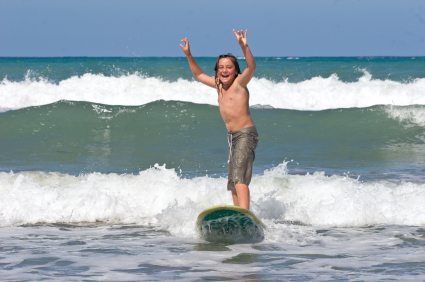 We’ve all been there: Those first few months (or weeks, or years) where you first learn to surf, trying to figure out the basics of surfing and establish your own fundamental knowledge and instinct for the sport.
We’ve all been there: Those first few months (or weeks, or years) where you first learn to surf, trying to figure out the basics of surfing and establish your own fundamental knowledge and instinct for the sport.
And if that’s where your surfing ability is today, it’s not a bad idea to take some advice from the pros. For 25 years, Surfcoach.com’s Martin Dunn has been helping surfers from the greenest of novices to some of the top competitive-level professionals take things to the next level.
Martin recently sat down with Surfscience.com to review some of the most frequent mistakes beginners make on their path to catching those bigger waves.
“Common mistakes among beginners are that some of them don’t use the right equipment, they jump on too small of a board; a larger board is better for a beginner,” the famous Australian surfing pro told us.
“Often people surf in places which are not suitable for them; too big or too wild or too crunchy type of conditions. Beginners need to be surfing softer, gentler waves, one to three feet, rolling type of waves.
“Another thing they do is, when they get to the big surf, they don’t spend enough time on the beach watching the conditions. They just paddle out to where the crowd is, because that’s where the waves are, or they paddle out somewhere where there’s no one, where they can get waves to themselves.
“A big part of surfing is making decisions about where you can get the best waves, more so than just following the lead of others. Learning self-sufficiency in the water is one of the things that people struggle with early on. And what they can do about that is, they can spend five minutes just looking at the ocean and trying to work out where the waves are in relation to landmarks on the beach so they can monitor where they are.
“Another problem surfers have is popping up, or jumping up as we say in Australia, where they just haven’t got the strength level to jump up fast and so they struggle a lot with their standing action early on. If you’ve got a bigger board and more flotation and a more stable platform you’ll have more success there.”
These are the time-tested basics of beginner surfing knowledge. After all, how many times have you seen a newbie go for a shortboard he couldn’t handle, or head out into advanced waters before he’s ready? Like any craft, trying to jump to the next level before you’re ready is just going to frustrate you and hurt your natural progress as a surfer.
There’s a lot more where this came from. Check out SurfCoach.com for more info on Martin Dunn and what his surfing knowledge can do for you.

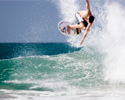
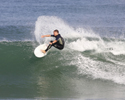
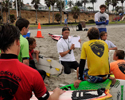

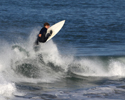
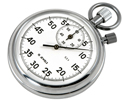
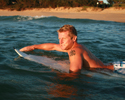
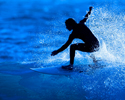
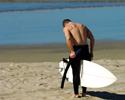
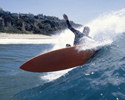
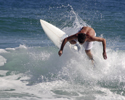
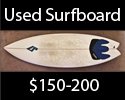

0 Comments